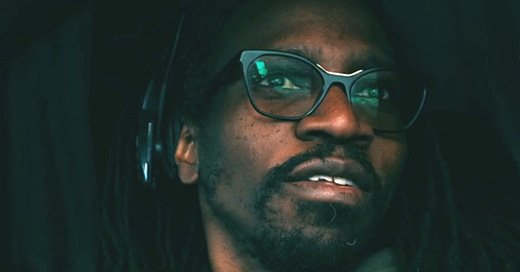Debit Cards Not Working (6 of 7)
Bank accounts belonging to their sons - aged 13 and 15 - were frozen.
Part 1: Grave Financial Peril

O'Jay describes the police conduct during the crackdown on the truckers, as "a complete violation, that's how we felt. Because there was no violence," he says, on the part of the protesters.
Ivana had remained in the hotel room with the kids that final Saturday morning. A few hours later, she managed to find O’Jay on the street. "We were being told by the police we must leave," she says,
They were patrolling, asking where you're staying, where you're going. I got scared, but he didn't want to leave. He told me, 'Go get the kids from the hotel, and we'll meet.' But then he got tear gassed. I called him, and I said, 'Please, just leave, leave. Find a way to leave,' because it was getting serious. And the next time I saw him we were all back in Brantford.
Returning to his truck wasn't straightforward. "It was behind us," O'Jay explains. "I went around, passed through some cops. They wouldn't allow me to go directly there, I had to walk around the block. When I was leaving they asked for my ID and everything, wrote it down on a pad."
On the return journey, Ivana discovered their bank accounts had been frozen. "At the gas station the cards weren't working. I'm like what's going on?" Luckily, a credit card solely in her name was unaffected, so she was able to complete her purchase.
All their joint household accounts with Scotiabank Canada had become inaccessible. "Anything with my name," says O'Jay. "Even our kids' bank accounts. Because they can't have full access to the app before sixteen." He says it seemed like a full week before matters were fully resolved and the two boys - aged thirteen and fifteen - were allowed access to their own money.
When he first telephoned the bank, "No one had an answer," O'Jay remembers. He was advised he’d have to speak to the bank’s president. "They said he had to make some recommendation directly. When I called, I was on hold for a while. There was no concern, or urgency to verify information" in order to rectify the situation.
O'Jay never did have a conversation with the bank president. Instead, he was advised to expect a call from the Royal Canadian Mounted Police,
Normally I don't answer a no-caller ID, but I did, and it was somebody from the RCMP. They started out by asking if I was in Brantford right now. I'm like, 'How do you know I'm in Brantford?'
And they were asking me, 'So you're not going back to Ottawa?'
I said, 'Well if I'm going back to Ottawa, I'm going back for my personal business. I'm not going to tell you what I'm doing.'
And they're like, 'We just want to know if you're going to be part of any protests.'
I said, 'Why would I go when you labeled a peaceful protest violent?' and he's like 'Yeah, but you still have to confirm that you're not going back if you want your accounts open.' And then the next day they were open.
At the time, astonishingly few people expressed concern over the absence of any court order authorizing these extreme measures. No written instructions had been issued by the government - or demanded by the banks. Those under the impression that Canada is governed by the rule of law, that ours is a society in which effective checks and balances exist, had the scales fall from our eyes. When they froze trucker bank accounts, financial institutions from one end of the country to the other betrayed their own customers. Swiftly and subserviently. Without bothering to ensure they were on solid legal ground.
In January 2024, a judge ruled that the freezing of these accounts was illegal. The trucker protest was not a national emergency, said Justice Richard Mosley. It "did not satisfy the requirements" described in the Emergencies Act, and therefore the use of that Act by the Canadian government was unjustified and unreasonable.
Moreover, Section 8 of Canada's Charter of Rights of Freedoms had been doubly violated. First when people's access to their own money was interfered with. Secondly, by the manner in which this occurred. Justice Mosley was told bank accounts were frozen even if the RCMP lacked reasonable grounds or reasonable suspicion of wrongdoing. Mere belief was sufficient.
The process "was all informal and ad hoc," concluded the judge. There "was no standard applied to determine whether someone should be the target of the measures." Nor was there any process by which affected parties could "question that determination" (see paragraph 358).
Shortly after Justice Mosely's ruling, O'Jay joined a lawsuit that seeks to hold financial institutions, police officers, and government ministers responsible for their role in the freezing of protester funds.
A print-out of customer notes he secured from his bank for the purpose of this lawsuit confirms he was referred to the president. Implausibly, this printout says his account was unfrozen on Monday, February 21st - even though that was a bank holiday.

In O’Jay’s view, "there needs to be accountability. If nothing happens, what's to stop them from doing it to our kids, to our grandkids? We want to see some answers," he says, "to the questions that will get asked" as this lawsuit wends its way through the legal system.
final installment: Fired for Taking Part in the Freedom Convoy




